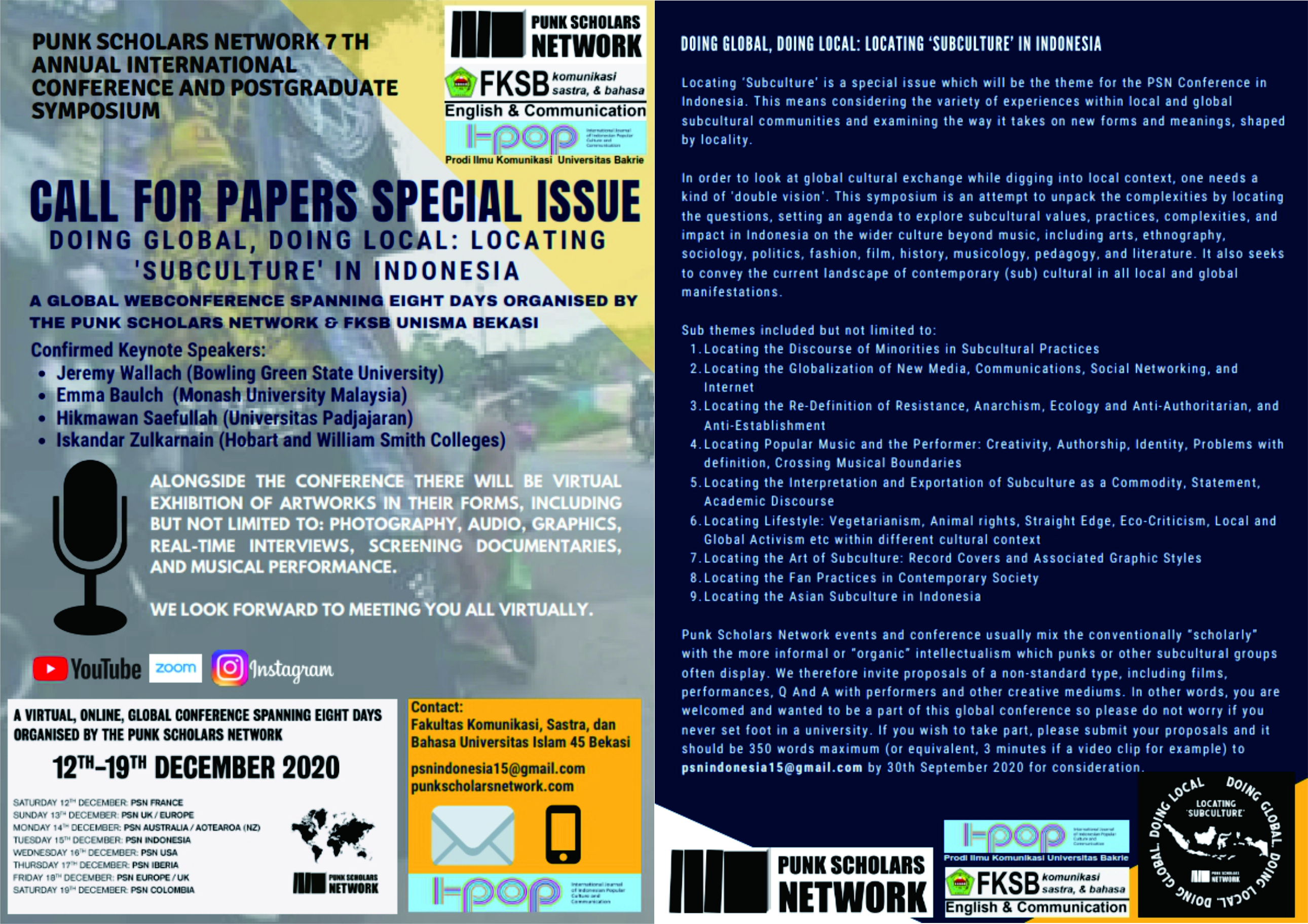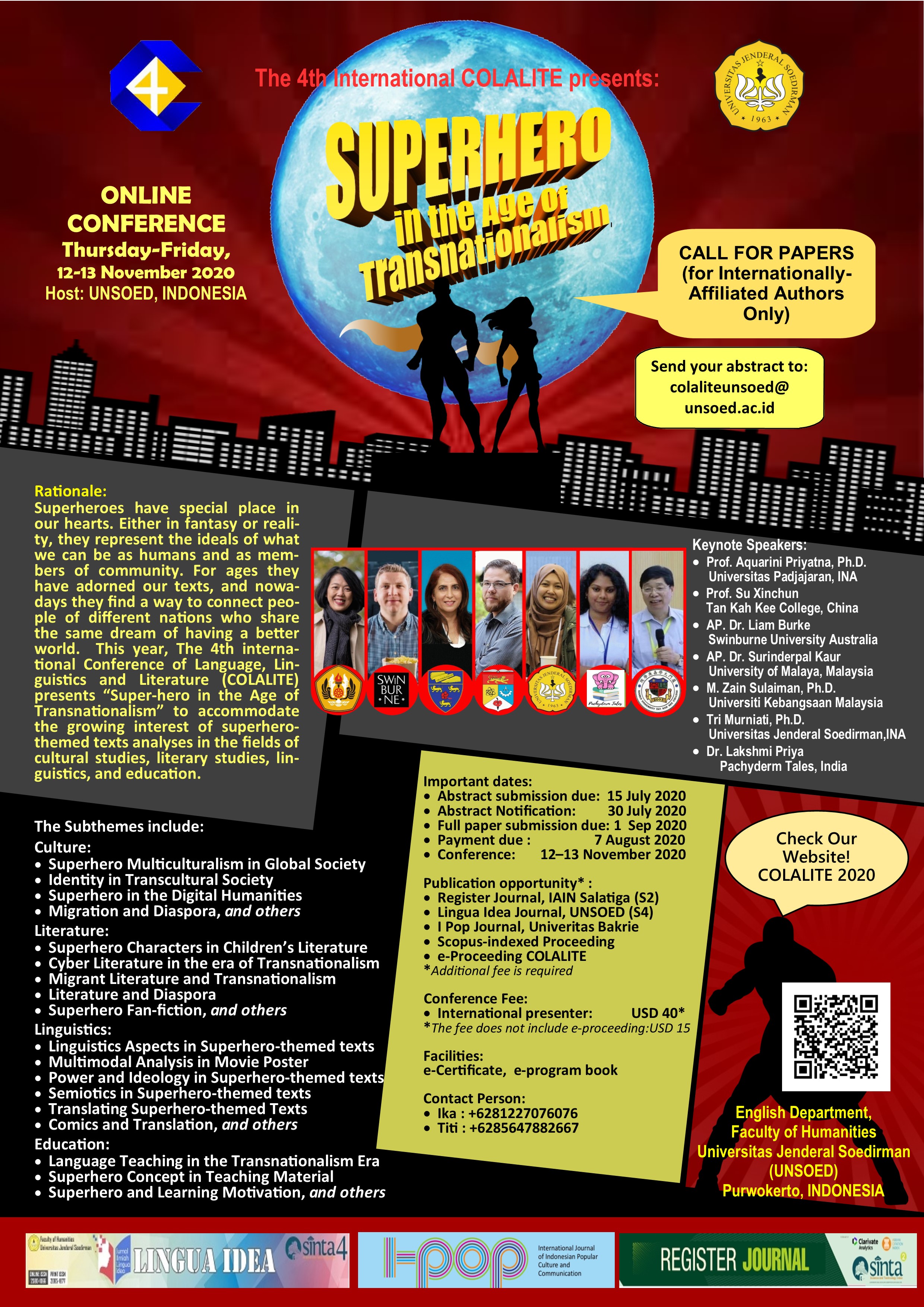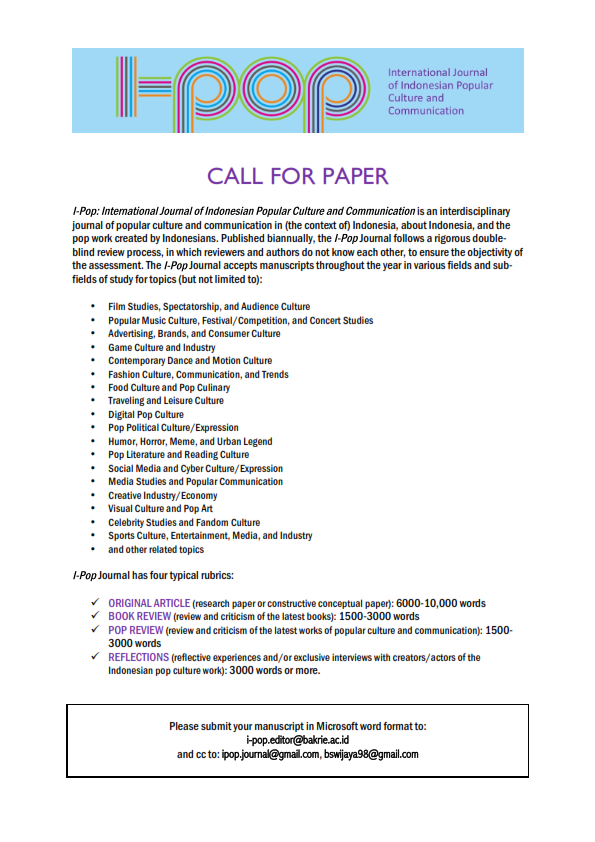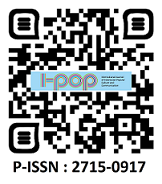Global Punk Conference -Indonesian Section
I-Pop: International Journal of Indonesian Popular Culture and Communication collaborates with Punk Scholars Network (PSN) Indonesia to publish the best-extended paper presented at the Punk Scholars Network 7th Annual International Conference. "Doing Global, Doing Local: Locating 'Subculture' in Indonesia". Especially for papers highlight the issue of Indonesian popular and punk culture or pop works related to Indonesia context.
https://www.punkscholarsnetwork.com/blog/punk-scholars-network-7th-annual-international-conference-starts-to-take-shape











